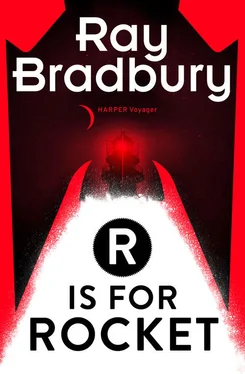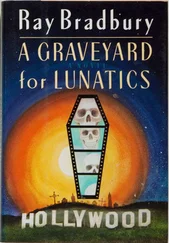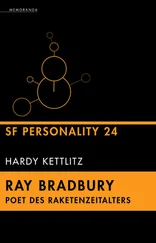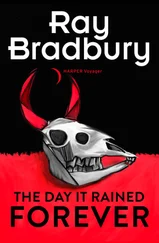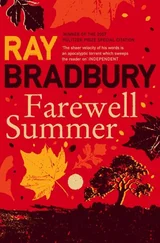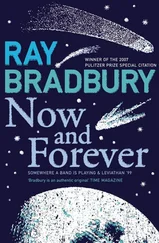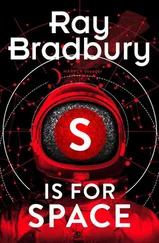Ray Bradbury - R is for Rocket
Здесь есть возможность читать онлайн «Ray Bradbury - R is for Rocket» — ознакомительный отрывок электронной книги совершенно бесплатно, а после прочтения отрывка купить полную версию. В некоторых случаях можно слушать аудио, скачать через торрент в формате fb2 и присутствует краткое содержание. Жанр: unrecognised, на английском языке. Описание произведения, (предисловие) а так же отзывы посетителей доступны на портале библиотеки ЛибКат.
- Название:R is for Rocket
- Автор:
- Жанр:
- Год:неизвестен
- ISBN:нет данных
- Рейтинг книги:5 / 5. Голосов: 1
-
Избранное:Добавить в избранное
- Отзывы:
-
Ваша оценка:
- 100
- 1
- 2
- 3
- 4
- 5
R is for Rocket: краткое содержание, описание и аннотация
Предлагаем к чтению аннотацию, описание, краткое содержание или предисловие (зависит от того, что написал сам автор книги «R is for Rocket»). Если вы не нашли необходимую информацию о книге — напишите в комментариях, мы постараемся отыскать её.
R is for Rocket — читать онлайн ознакомительный отрывок
Ниже представлен текст книги, разбитый по страницам. Система сохранения места последней прочитанной страницы, позволяет с удобством читать онлайн бесплатно книгу «R is for Rocket», без необходимости каждый раз заново искать на чём Вы остановились. Поставьте закладку, и сможете в любой момент перейти на страницу, на которой закончили чтение.
Интервал:
Закладка:
The sun was rising.
Bodoni withdrew hastily into the rocket. Silence. All still slept. He breathed easily. Tying himself into a hammock, he closed his eyes. To himself he prayed, Oh, let nothing happen to the illusion in the next six days. Let all of space come and go, and red Mars come up under our ship, and the moons of Mars, and let there be no flaws in the color film. Let there be three dimensions; let nothing go wrong with the hidden mirrors and screens that mold the fine illusion. Let time pass without crisis.
He awoke.
Red Mars floated near the rocket.
“Papa!” The children thrashed to be free.
Bodoni looked and saw red Mars and it was good and there was no flaw in it and he was very happy.
At sunset on the seventh day the rocket stopped shuddering.
“We are home,” said Bodoni.
They walked across the junkyard from the open door of the rocket, their blood singing, their faces glowing. Perhaps they knew what he had done. Perhaps they guessed his wonderful magic trick. But if they knew, if they guessed, they never said. Now they only laughed and ran.
“I have ham and eggs for all of you,” said Maria, at the kitchen door.
“Mama, Mama, you should have come, to see it, to see Mars, Mama, and meteors, and everything!”
“Yes,” she said.
At bedtime the children gathered before Bodoni. “We want to thank you, Papa.”
“It was nothing.”
“We will remember it for always, Papa. We will never forget.”
Very late in the night Bodoni opened his eyes. He sensed that his wife was lying beside him, watching him. She did not move for a very long time, and then suddenly she kissed his cheeks and his forehead. “What’s this?” he cried.
“You’re the best father in the world,” she whispered.
“Why?”
“Now I see,” she said. “I understand.”
She lay back and closed her eyes, holding his hand. “Is it a very lovely journey?” she asked.
“Yes,” he said.
“Perhaps,” she said, “perhaps, some night, you might take me on just a little trip, do you think?”
“Just a little one, perhaps,” he said.
“Thank you,” she said. “Good night.”
“Good night,” said Fiorello Bodoni.
The Rocket Man
The electrical fireflies were hovering above Mother’s dark hair to light her path. She stood in her bedroom door looking out at me as I passed in the silent hall. “You will help me keep him here this time, won’t you?” she asked.
“I guess so,” I said.
“Please.” The fireflies cast moving bits of light on her white face. “This time he mustn’t go away again.”
“All right,” I said, after standing there a moment. “But it won’t do any good; it’s no use.”
She went away, and the fireflies, on their electric circuits, fluttered after her like an errant constellation, showing her how to walk in darkness. I heard her say, faintly, “We’ve got to try, anyway.”
Other fireflies followed me to my room. When the weight of my body cut a circuit in the bed, the fireflies winked out. It was midnight, and my mother and I waited, our rooms separated by darkness, in bed. The bed began to rock me and sing to me. I touched a switch; the singing and rocking stopped. I didn’t want to sleep. I didn’t want to sleep at all.
This night was no different from a thousand others in our time. We would wake nights and feel the cool air turn hot, feel the fire in the wind, or see the walls burned a bright color for an instant, and then we knew his rocket was over our house—his rocket, and the oak trees swaying from the concussion. And I would lie there, eyes wide, panting, and Mother in her room. Her voice would come to me over the interroom radio:
“Did you feel it?”
And I would answer, “That was him, all right.”
That was my father’s ship passing over our town, a small town where space rockets never came, and we would lie awake for the next two hours, thinking. “Now Dad’s landed in Springfield, now he’s on the tarmac, now he is signing the papers, now he’s in the helicopter, now he’s over the river, now the hills, now he’s settling the helicopter in at the little airport at Green Village here.…” And the night would be half over when, in our separate cool beds, Mother and I would be listening, listening. “Now he’s walking down Bell Street. He always walks … never takes a cab … now across the park, now turning the corner of Oakhurst and now …”
I lifted my head from my pillow. Far down the street, coming closer and closer, smartly, quickly, briskly—footsteps. Now turning in at our house, up the porch steps. And we were both smiling in the cool darkness, Mom and I, when we heard the front door open in recognition, speak a quiet word of welcome, and shut, downstairs.…
Three hours later I turned the brass knob to their room quietly, holding my breath, balancing in a darkness as big as the space between the planets, my hand out to reach the small black case at the foot of my parents’ sleeping bed. Taking it, I ran silently to my room, thinking. He won’t tell me, he doesn’t want me to know.
And from the opened case spilled his black uniform, like a black nebula, stars glittering here or there, distantly, in the material. I kneaded the dark stuff in my warm hands; I smelled the planet Mars, an iron smell, and the planet Venus, a green ivy smell, and the planet Mercury, a scent of sulfur and fire; and I could smell the milky moon and the hardness of stars. I pushed the uniform into a centrifuge machine I’d built in my ninth-grade shop that year, set it whirling. Soon a fine powder precipitated into a retort. This I slid under a microscope. And while my parents slept unaware, and while our house was asleep, all the automatic bakers and servers and robot cleaners in an electric slumber, I stared down upon brilliant motes of meteor dust, comet tail, and loam from far Jupiter glistening like worlds themselves which drew me down the tube a billion miles into space, at terrific accelerations.
At dawn, exhausted with my journey and fearful of discovery, I returned the boxed uniform to their sleeping room.
Then I slept, only to waken at the sound of the horn of the dry-cleaning car which stopped in the yard below. They took the black uniform box with them. It’s good I didn’t wait, I thought. For the uniform would be back in an hour, clean of all its destiny and travel.
I slept again, with the little vial of magical dust in my pajama pocket, over my beating heart.
When I came downstairs, there was Dad at the breakfast table, biting into his toast. “Sleep good, Doug?” he said, as if he had been here all the time, and hadn’t been gone for three months.
“All right,” I said.
“Toast?”
He pressed a button and the breakfast table made me four pieces, golden brown.
I remember my father that afternoon, digging and digging in the garden, like an animal after something, it seemed. There he was with his long dark arms moving swiftly, planting, tamping, fixing, cutting, pruning, his dark face always down to the soil, his eyes always down to what he was doing, never up to the sky, never looking at me, or Mother, even, unless we knelt with him to feel the earth soak up through the overalls at our knees, to put our hands into the black dirt and not look at the bright, crazy sky. Then he would glance to either side, to Mother or me, and give us a gentle wink, and go on, bent down, face down, the sky staring at his back.
That night we sat on the mechanical porch swing which swung us and blew a wind upon us and sang to us. It was summer and moonlight and we had lemonade to drink, and we held the cold glasses in our hands, and Dad read the stereo-newspapers inserted into the special hat you put on your head and which turned the microscopic page in front of the magnifying lens if you blinked three times in succession. Dad smoked cigarettes and told me about how it was when he was a boy in the year 1997. After a while he said, as he had always said, “Why aren’t you out playing kick-the-can, Doug?”
Читать дальшеИнтервал:
Закладка:
Похожие книги на «R is for Rocket»
Представляем Вашему вниманию похожие книги на «R is for Rocket» списком для выбора. Мы отобрали схожую по названию и смыслу литературу в надежде предоставить читателям больше вариантов отыскать новые, интересные, ещё непрочитанные произведения.
Обсуждение, отзывы о книге «R is for Rocket» и просто собственные мнения читателей. Оставьте ваши комментарии, напишите, что Вы думаете о произведении, его смысле или главных героях. Укажите что конкретно понравилось, а что нет, и почему Вы так считаете.
